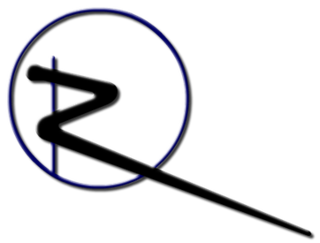
Krome Studios Melbourne, originally Beam Software, was an Australian video game development studio founded in 1980 by Alfred Milgrom and Naomi Besen and based in Melbourne, Australia. Initially formed to produce books and software to be published by Melbourne House, a company they had established in London in 1977, the studio operated independently from 1987 until 1999, when it was acquired by Infogrames, who changed the name to Infogrames Melbourne House Pty Ltd.. In 2006 the studio was sold to Krome Studios.

Tynesoft Computer Software was a software developer and publisher in the 1980s and early 1990s.

Bug-Byte Software Ltd. was a video game company founded in 1980 in Liverpool, initially producing software for the Acorn Atom and ZX80. Bug-Byte's first hit was Don Priestley's Mazogs which was one of the most successful titles for the ZX81. In 1983, it published Manic Miner, considered to be one of the most influential platform games of all time. The company went into liquidation in 1985 but their name and logo were purchased by Argus Press PLC for use as a budget software label.
MicroIllusions was a computer game developer and publisher of the home computer era. Based in Granada Hills, California, the company was a strong supporter of the Amiga and typically released titles on that platform before porting it to others.
Tasword is a word processor for microcomputers developed by Tasman Software. The first version was released for the ZX81 in 1982 and spawned two major revisions in addition to several add-ons and, later, tailored versions for the +2 and +3 Spectrum models, the SAM Coupé, the MSX, the Timex Sinclair 2068 and the Amstrad CPC range.
Engine Software is a Dutch video game developer, located in Doetinchem, Netherlands, which specialized in handheld video games and digital platforms until 2011. In the period after (2011-present) they have become more active and known for high-end ports and adaptations of games to modern consoles, mobile, PC and streaming services like Stadia and Luna. Some of the best known games they have worked on include Puzzle Quest for the Nintendo DS, Terraria for PlayStation 3, PlayStation 4, PlayStation Vita, Xbox 360, Xbox One and Wii U, Killer7 Remastered for PC, Ni No Kuni: Wrath of the White Witch for Nintendo Switch and No More Heroes / No More Heroes 2 for Nintendo Switch.

Colossus Chess is a series of chess-playing computer programs developed by Martin Bryant, commercially released for various home computers in the 1980s.

Zemina was a South Korean software maker brand of Saehan Trading founded in 1981. They primarily made games for the Daewoo Zemmix, but because it was an MSX computer made to look and be played like a game console, they work on other MSX computers as well. Although many of them were copies of other games, like Super Boy I, they also produced some more original ones in their later years.

WEC Le Mans, known as WEC Le Mans 24 in Japan, is a racing simulation video game released in arcades by Konami in 1986. It was the first racing video game to depict the 24 Hours of Le Mans World Endurance Championship (WEC). The Lap of Le Mans is split up into three sections, during which the time of day changes from day to dusk, dusk to night, and night to dawn.

Game Over II is a combination scrolling shooter and platform game developed and published by Dinamic Software in 1987 for the ZX Spectrum, MSX, MS-DOS, Amstrad CPC, Commodore 64, and Atari ST.

Radarsoft is a Dutch software development company that published video games in the 1980s. It released its first game in 1984 for the Commodore 64. Until 1987 Radarsoft released multiple titles for the Amiga, Atari 8-bit computers, Philips MSX, and MS-DOS. Their main focus was the Dutch market, so most games are only available in Dutch. In 1986 Radarsoft went to the American video game market, but a packaging error at a Dutch warehouse cost the studio more money than they were able to recoup.

Space Shuttle: A Journey into Space is a space flight simulator game designed by Steve Kitchen for the Atari 2600 and published by Activision in 1983. It is one of the first realistic spacecraft simulations available for home systems. Space Shuttle was adapted to the Atari 8-bit computers and Atari 5200 by Bob Henderson (1984), then ported to the ZX Spectrum (1984), Commodore 64 (1984), Amstrad CPC (1986), and MSX (1986). The 1984 Activision Software catalog also mentions an Apple II version.

Oh Shit! is a Pac-Man clone released in 1985 for the MSX by The ByteBusters and published by Dutch publisher Aackosoft under the Classics range of games; a range that consists of clones of arcade games, i.e. Scentipede being a clone of Atari's Centipede. Oh Shit!'s level and art design is identical to that of Pac-Man.










